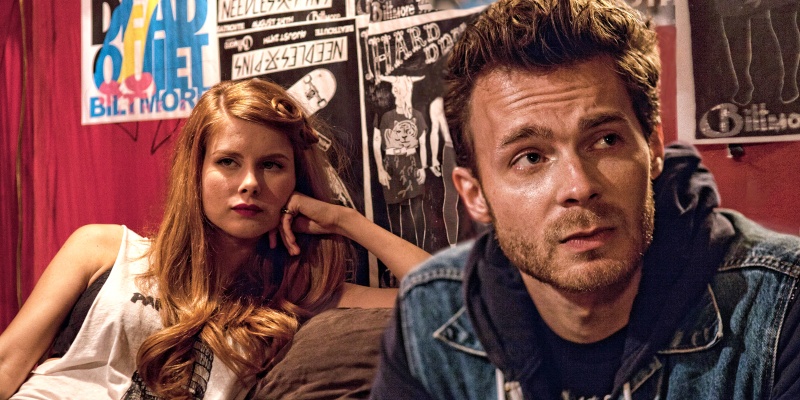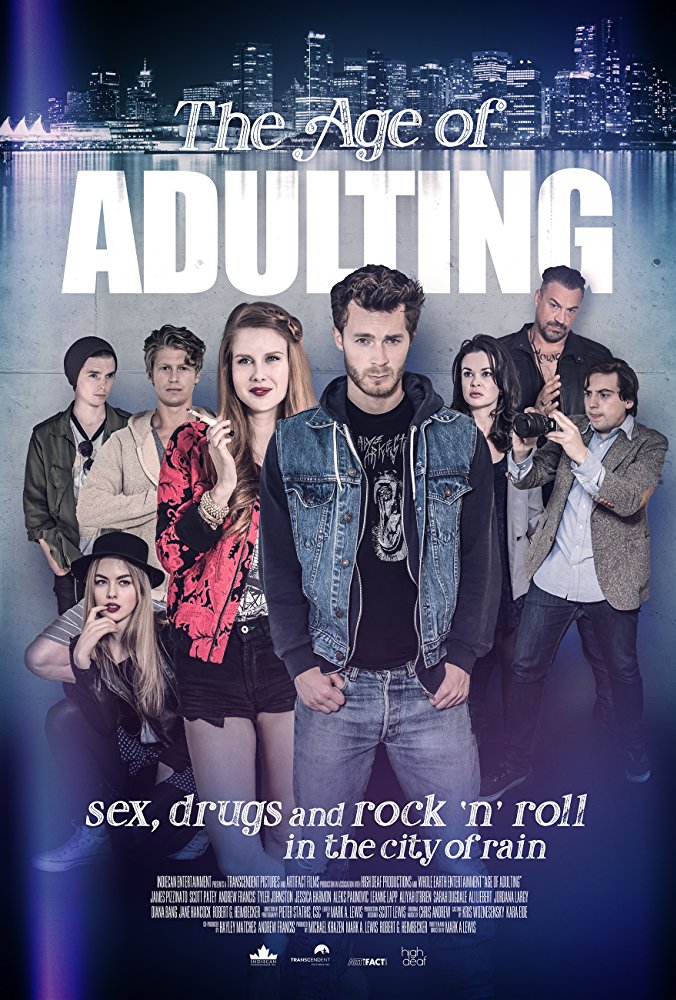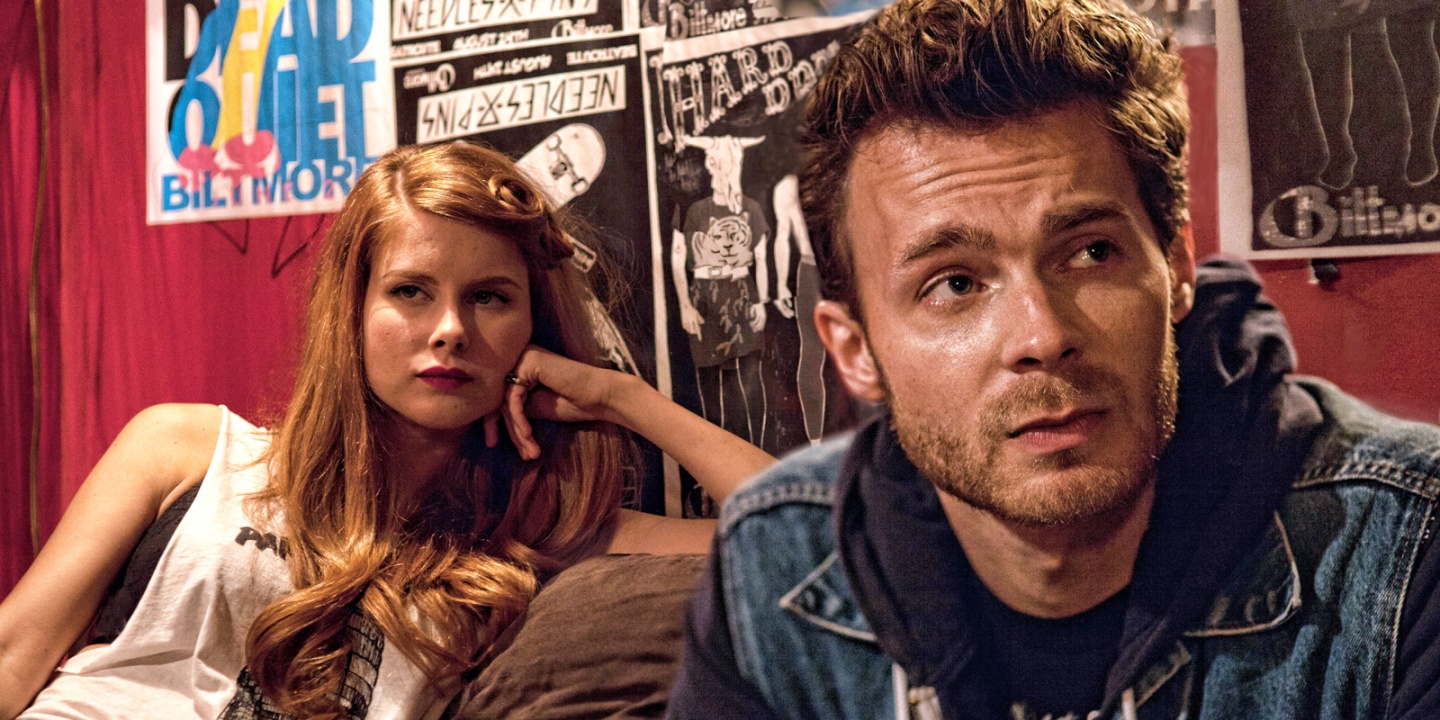By Adam Cook

On Friday, April 20th we’ll be screening the world premiere of the latest film from Mark Lewis, The Age of Adulting (aka There’s Nothing Romantic About Vancouver) as part of Canadian Film Week. A scathing satire of the film scene in our city, it is a film nevertheless made with love and hope for a better future for Vancouver’s relationship to the seventh art. The film follows a screenwriter who starts documenting his actor buddy’s life only to begin to spiral into debauchery. We caught up with Mark Lewis to get his perspective on his film and its subject.
VIFF: How would you describe your film?
Mark Lewis: The original draft was long and had an episodic feel, kind of felt to me like Robert Altman’s Short Cuts. But when I shared it the reaction was surprisingly positive so instead of cutting it in half I created six 30 page episodes and actually raised the money and shot it as a series. The film came later and is really an abridged version of the 3 hours of original content. I felt that I could reach more of an audience with a six-episode series as opposed to a 3-hour film (or even a 90-minute film). So how would I describe the film? Experimental in terms of my process discovering the medium and the best way to reach our audience. In terms of the content, I would describe it as relatable, authentic and entertaining. It’s also a little dark I suppose. The protagonist Jason delves into some shadowy territory and returns scathed and deeply affected. But isn’t this story closer to the truth for many in their twenties than how that age is normally represented? On the topic of Canadian film, I wonder if Canadians, generally speaking, are afraid to explore their shadows unless even that exploration is still politically correct? Kissed for example is a wonderful film and certainly dark as it deals with necrophilia, but it never explores the dissonance that naturally exists between our unconscious as well as between other people. In this film I intended to explore themes of isolation, sexuality and also misogyny in a complex way, letting the story tell itself as opposed to feeling pressure to tackle these themes carefully. If we’re expressing our deepest truths we’re bound to make someone feel threatened. Lars Von Trier is the best example of this. He’s very courageous.

VIFF: As a Vancouverite cinephile, I have long been frustrated with both the independent film scene and its lack of support, so this film really struck a chord with me. What are your feelings about the scene here in such an industry-dominated town?
Lewis: The vast majority of people in any film industry are there for their livelihood and have very little interest in the films made by independent filmmakers. And so I sometimes feel frustrated with the lack of potential collaborators and financial supporters who are inspired by the films that inspire me (perhaps this echoes your frustration). The critical mass that’s necessary to start a real movement (like in Romania in the last decade) certainly has yet to manifest. In Romania, this started with evolved institutions and by having motivated storytellers in the middle of a complex society in transition. Deep thinking people see film as a very important medium in this part of the world. Canadian storytellers lack this type of cultural context (although this seems to be changing). We’re also such a young country that lacks a textured mythology. The U.S. is also relatively young but American culture has embedded within it a mythology of boldness, independence and of conquering (and shameless self-promotion). There are certainly many examples of courageous Canadians but culturally we’re dependent on others. And dependency is symptomatic of weakness in a hierarchical context and that’s just not inherently interesting. Further to this, we look and sound and act a lot like our neighbours to the south, who happen to be the greatest storytellers in the world. And we certainly lack the talent pool they have, the money and the infrastructure (an evolved system that fosters a rigorous process of allowing the cream to rise to the top in the biggest glass of milk in the world). We have a profoundly complex problem. The only solution, as I see it, is for our community to focus on telling personal stories (not necessarily personal to the filmmaker). And for the funders to fund more films for less.
VIFF: What’s essential about Vancouver “playing itself” in films?
Lewis: I’m not really sure. There doesn’t seem to be a very loud cry for people in English speaking Canada to see films about themselves. Which is very different from Quebec. Perhaps this is about cultural priorities, or having a language barrier and more of a cultural distance from Hollywood (for Quebec), but I think it also has to do with emotional resonance as well as nuanced analysis in the storytelling. However, perhaps this lack of nuance and resonance has more to do with the culture itself than the storytellers. Perhaps we don’t care to see films about ourselves because we don’t see ourselves as interesting. I think we’re plenty interesting if we delve a little deeper into the stuff we’re afraid to look at. Lots of fear in this culture, that’s for sure.
VIFF: Do you have a favourite film set in Vancouver?
Lewis: Live Bait by Bruce Sweeney.
The Age of Adulting will have its world premiere at Vancity Theatre on Friday, April 20th as part of Canadian Film Week. Filmmakers in attendance.
Tickets: http://goviff.org/theageofadulting
